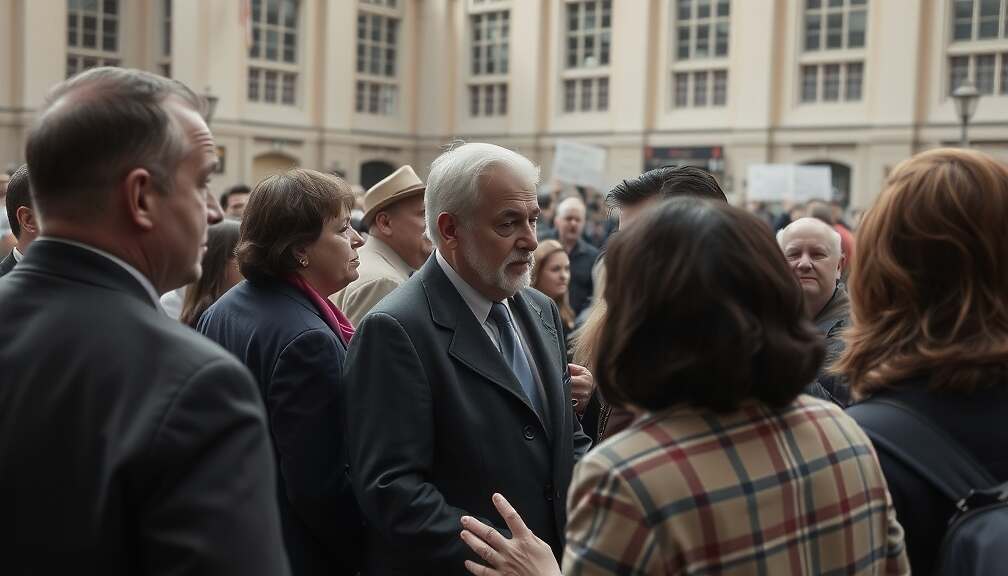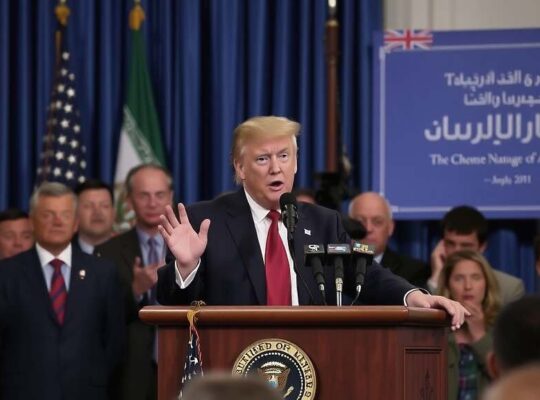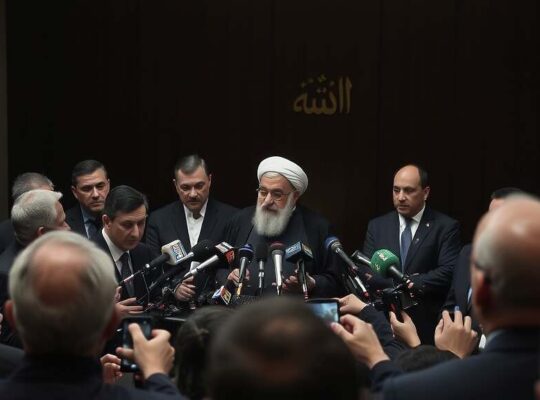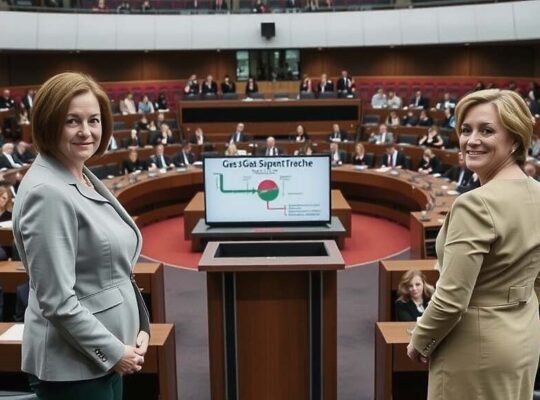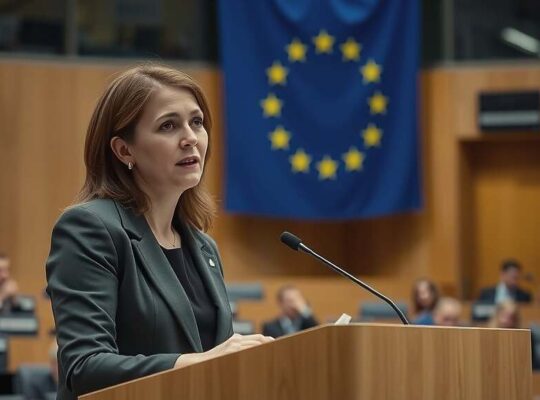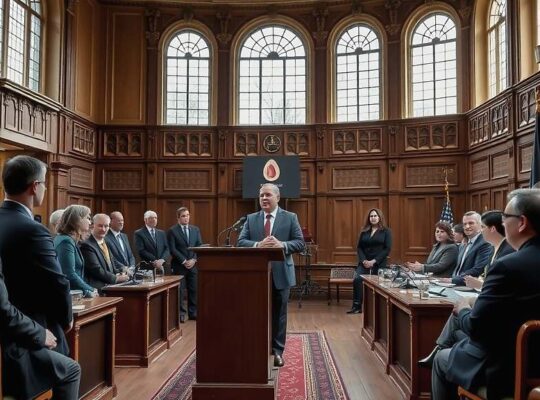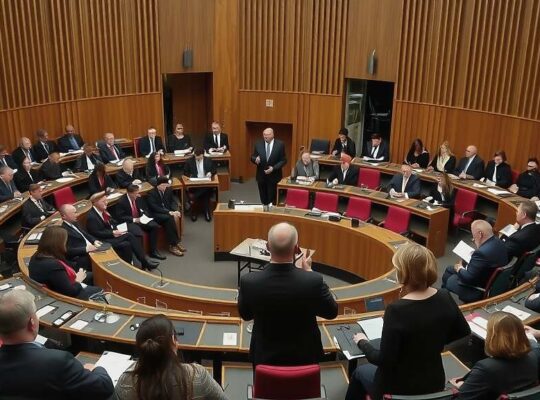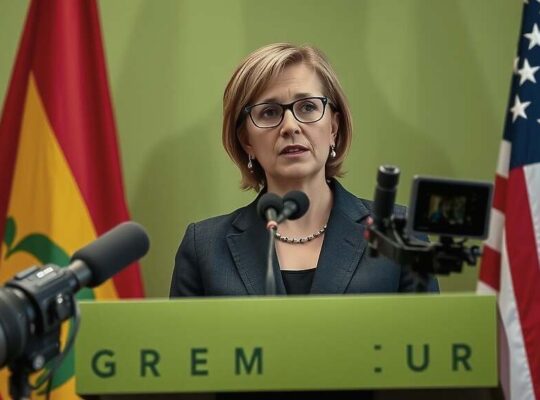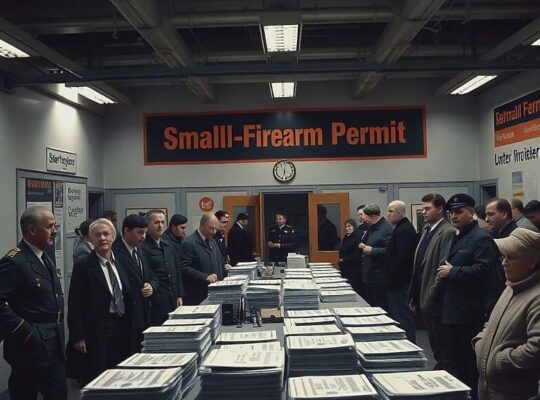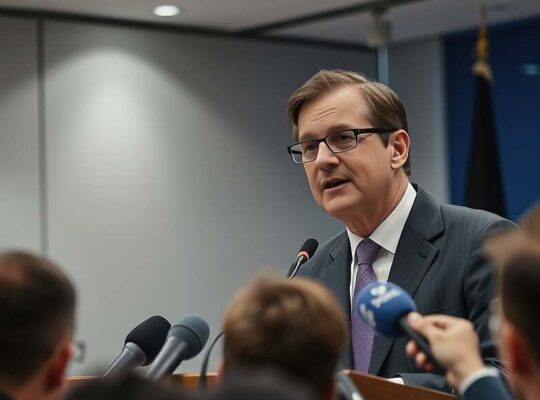The ongoing coalition crisis in Brandenburg, triggered by internal strife within the breakaway Sahra Wagenknecht Alliance (BSW), has prompted the party’s founder to acknowledge strategic missteps in the past. In an interview with the Redaktionsnetzwerk Deutschland, Wagenknecht conceded that the BSW should have voiced concerns regarding the media state treaties (“Medienstaatsverträge”) at a much earlier stage.
Wagenknecht attributed the oversight to the party’s relative youth and lack of established infrastructure. She explained that the BSW, unlike established political entities, currently lacks a dedicated team of policy advisors – a “referenten-Apparat” – responsible for scrutinizing such legislative proposals. “Normally, a policy advisor would have drafted a position paper, which would have then been incorporated into Robert Crumbach’s briefing for the Brandenburg cabinet. I simply haven’t had the bandwidth to focus on strategic questions for over a year, consumed as I have been with party management” she stated.
Despite the recent departures of four state parliamentarians, a move which has significantly destabilized the fragile SPD-BSW coalition government in Brandenburg, Wagenknecht expressed cautious optimism regarding its potential survival. She indicated ongoing discussions with the dissenting members and emphasized the importance of local dialogue to resolve the conflict, advocating against immediate expulsion from the parliamentary group. The Brandenburg state parliament is scheduled to vote on the media state treaties this Wednesday, a critical juncture highlighting the precariousness of the political landscape.
Looking ahead, Wagenknecht announced she will not seek re-election as party leader at the upcoming BSW party conference in Magdeburg this December. Instead, she intends to assume the role of chairwoman of a newly formed “fundamental values commission” signaling a shift in strategy aimed at shaping the party’s long-term direction. This move, while seemingly distancing herself from day-to-day party affairs, could be interpreted as a calculated effort to solidify her influence and guide BSW’s ideological positioning from a more strategic position – potentially mitigating the immediate fallout from the Brandenburg crisis while subtly influencing the party’s future trajectory.


